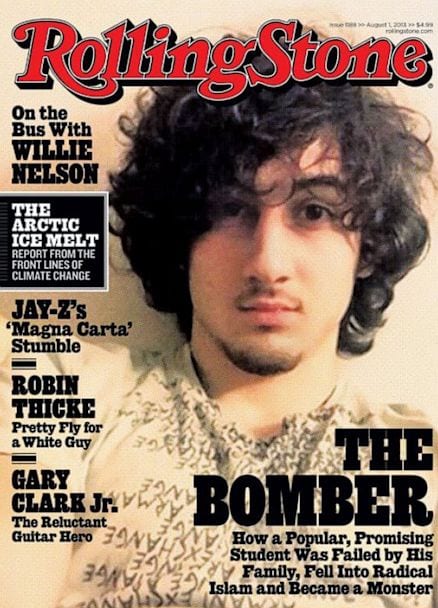JESSE SINGAL: It Isn’t Journalism’s Job To Hand-Hold People To The Correct Moral Conclusions.
Journalism is screwed for a lot of reasons, most of them structural and having nothing to do with the views of even the most moralizing, censorious gatekeepers. But still: It’s a really, really bad sign that said gatekeepers understand journalism in this way, and that they’re eagerly trying to inflict their views on other journalists.
These are eternal debates within journalism, of course: what “objectivity” means, the proper way to contextualize bad acts and actors, and so on. It isn’t new for people to respond angrily to a portrayal of a wrongdoer that is rendered with certain shades of gray.
Way back in 2013, for example, I wrote a piece for The Boston Globe (unlocked archive here) arguing that, contrary to a swell of outrage, Rolling Stone hadn’t actually erred in publishing an issue of its magazine fronted by this image of Boston Marathon bombing co-conspirator Dzhokhar Tsarnaev:
I wrote that while some complained that the image “glorified” the terrorist, “We fear the image not because it glorifies Tsarnaev, but because he looks like any other teen trying to strike a cool, aloof pose for a photograph. He appears too normal to have done a horrible thing.” This is useful! The whole point is he was a normal kid, and then he became a terrorist. As someone once said, It Is Really Important to Humanize Evil if we hope to understand it.
The Tsarnaev cover outrage was a big media story at the time, and some retailers refused to carry that issue of Rolling Stone. But I don’t remember large numbers of journalists piling on the magazine for making this decision, nor does a quick review of the contemporaneouscoverage of the controversy show that this was the case. I guess it could just be that Twitter wasn’t a very big deal yet and we weren’t all swimming around in journalists’ opinions about each and every controversy (what a nightmare we inhabit), but I do think back then most journalists understood that “You made the bad man look not so bad” was a fairly un-journalistic opinion to hold, even if they could understand why members of the public might feel upset.
These days, journalists are very quick to make these sorts of snap judgements. As part of the great Donald Trump brain-melting — a process that is still unfolding — many journalists now understand their jobs differently from how they used to. One of their most holy responsibilities, in this view, is to protect readers and listeners from bad ideas, which can easily infect them if journalist-guardians drop their guards for one second.
Read the whole thing.

